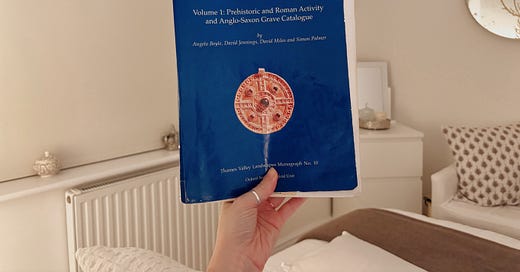Love in Loss: Parenting in Early Medieval England
A case study from Lechlade Anglo-Saxon Cemetery
Hello there! I’m currently studying for a PhD in Archaeology at Oxford, researching the role of women in the social and political developments of 6th- and 7th-century England and France. With a worldwide readership of over 4,400 PLUS featuring regularly in Substack’s top 100 fastest-growing history publications, I share medieval history as you rarely hear it. I combine written and archaeological evidence to share the experiences of overshadowed individuals, ask challenging questions of dominant interpretations, and recommend books and writers doing a wonderful job of unearthing the past. My top 3 posts of all time have been a review of Rebecca Stott’s Dark Earth, biography of Æthelthryth of the Northumbrians (the queen who wouldn’t sleep with her husband), and my guide to Oxford’s top medieval moments.
Love in Loss: Parenting in Early Medieval England
A case study from Lechlade Anglo-Saxon Cemetery
It’s a familiar trope that early medieval parents coped with high levels of infant mortality by not forming a close attachment to their children.
‘Perhaps children died so frequently and were considered of such little account that they were simply placed in the grave of any adult who happened to die at the same time.’
These are the words of one commentator on the burial practices of the Anglo-Saxons in England.
But it’s a trope that I find difficult to come to terms with, in part because I see evidence against it time and again in the archaeological record of early medieval England.
For my PhD, I’ve been combing through the excavation reports for a number of sixth- and seventh-century cemeteries across the kingdoms that would later become England. Some of them are very well-recorded, particularly where they have been excavated with modern archaeological methods.





